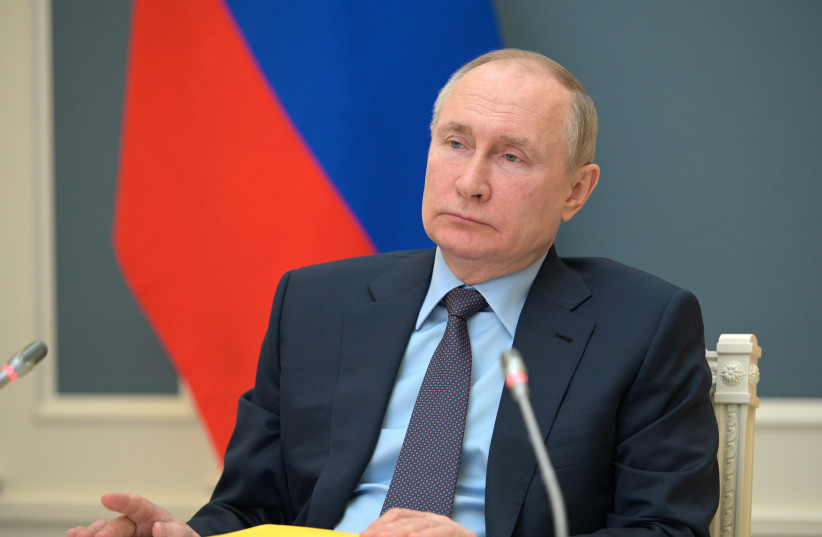The United States and Britain would cut off Russian companies' access to US dollars and British pounds if the Kremlin orders an invasion of Ukraine, British Prime Minister Boris Johnson said on Sunday.
The United States and Britain have repeatedly cautioned that Russia is about to invade Ukraine, a step Washington and London say would trigger the biggest conflict since the end of World War Two. Russia denies it plans to annex Ukraine.
Johnson said that Western sanctions on Russia in the event of an invasion would go much further than he has previously suggested in public.
"We are even, with our American friends, going to stop them trading in pounds and dollars," Johnson told the BBC. "That will hit very, very hard."
Johnson, though, questioned if the threat of sanctions would be enough to deter Russian President Vladimir Putin because the Kremlin chief might not be thinking logically.

"We have to accept at the moment that Vladimir Putin is possibly thinking illogically about this and doesn't see the disaster ahead," Johnson said.
Britain, home to the center of global foreign exchange trading, has previously threatened to block Russian companies from raising capital in London and to expose what Johnson calls the "Russian doll" of property and company ownership.
Britain has not spelled out who would fall under the sanctions, but has pledged that there would be nowhere for Russian oligarchs to hide. Johnson has said targets could include Russian banks.
Russia denies it plans to annex another part of Ukraine, after it took Crimea in 2014. Putin says the West is sowing hysteria in a crude attempt to lure Russia into war after ignoring the Kremlin's concerns about NATO enlargement after the Cold War.
Russia, according to Western estimates, has more than 150,000 troops on the Ukrainian border.
Such assessments by US and British spies cannot be trusted as they made so many grave mistakes in the run up to the US-led invasion of Iraq, Russia's first deputy permanent representative to the United Nations, Dmitry Polyanskiy, said.
DOLLAR TRADE
Given Russia's position as one of the world's top exporters of oil, gas and metals - which are largely priced and settled in US dollars - blocking Russian companies from access to dollar markets could have a stinging impact.
Putin has repeatedly called for reducing reliance on the US dollar trade and recent major energy contracts with China have been priced in euros.
Russia's largest oil company Rosneft fully switched the currency of its contracts to euros from US dollars to shield its transactions from US sanctions, CEO Igor Sechin said in 2019.
London is by far the biggest center for global foreign exchange, accounting for more than 43% of the total turnover, according to the Bank for International Settlement. The dollar is the most traded currency, followed by the euro, yen and British pound.
Hundreds of billions of dollars have flowed into London and Britain's overseas territories from Russia since the fall of the Soviet Union in 1991, and London has become the Western city of choice for the super-wealthy of Russia and other former Soviet republics.
Western intelligence services believe Putin may order an unconventional attack on Ukraine which might require the West to make a swift judgment call on the imposition of sanctions, a senior Western official said on Friday.
